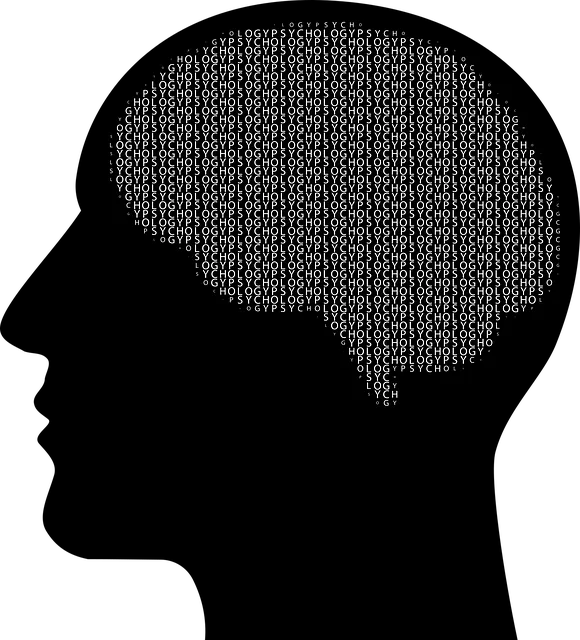Kaiser Permanente behavioral health services in Centennial offer a holistic approach combining CBT and mindfulness meditation. They emphasize open communication, risk management, and community resilience through workshops and programs like Empathy Building Strategies and Mental Wellness Coaching. Using RFM analysis, they proactively identify at-risk individuals and develop targeted interventions. Mindfulness practices and empathy building strengthen emotional well-being, fostering self-awareness and coping skills for better mental health outcomes. Success is measured through pre-post assessments and client feedback, ensuring tailored exercises for lasting resilience.
“Discovering resilience through innovative practices: A comprehensive guide to enhancing mental well-being in young adults. This article explores an effective framework inspired by Kaiser Permanente Behavioral Health Services, tailored for community engagement and building resilience. We delve into the RFM (Reach, Frequency, Motivation) analysis as a powerful tool to identify at-risk individuals. Furthermore, it presents evidence-based resilience exercises and offers insights on measuring the success of such implementations, particularly in Centennial communities.”
- Kaiser Permanente Behavioral Health Services: A Framework
- Centennial Community Engagement: Building Resilience
- RFM Analysis: Identifying At-Risk Individuals
- Effective Resilience Exercises for Young Adults
- Measuring Success: Evaluating RFM Implementation
Kaiser Permanente Behavioral Health Services: A Framework

Kaiser Permanente Behavioral Health Services offers a robust framework for implementing resilience-building exercises and enhancing mental health support in Centennial and beyond. Their comprehensive approach integrates evidence-based practices, focusing on both individual and community well-being. By drawing from various therapeutic modalities, including Cognitive Behavioral Therapy (CBT) and Mindfulness Meditation, the services aim to equip individuals with effective coping strategies for managing stress and adversity.
The framework emphasizes the importance of Communication Strategies and Risk Management Planning for Mental Health Professionals as cornerstones of a supportive environment. Through regular workshops and training sessions, practitioners learn to foster open dialogue, ensuring clients feel heard and understood. Additionally, integrating mindfulness practices into daily routines encourages professionals to stay present, enhancing their ability to provide consistent and compassionate care.
Centennial Community Engagement: Building Resilience

In Centennial, Kaiser Permanente behavioral health services have recognized the importance of community engagement in fostering resilience. Through various initiatives, they aim to build a strong and supportive network that enhances mental wellness among its members. One key strategy is the implementation of Empathy Building Strategies, which focus on cultivating understanding and connection within the community. These exercises not only strengthen interpersonal relationships but also serve as powerful tools for Self-Esteem Improvement, enabling individuals to develop a positive sense of self and resilience in the face of challenges.
The programs developed by Kaiser Permanente behavioral health services go beyond traditional therapy models. They incorporate Mental Wellness Coaching Programs that provide personalized guidance and support, empowering individuals to take charge of their mental health. By engaging the community through these initiatives, Centennial residents are equipped with valuable skills and resources to navigate life’s complexities, fostering a sense of belonging and overall well-being.
RFM Analysis: Identifying At-Risk Individuals

At Kaiser Permanente behavioral health services Centennial, RFM analysis is a powerful tool to identify individuals at risk and develop targeted interventions. By evaluating RFM—Recency of service, Frequency of engagement, and Monetary value of interactions—health professionals can gain valuable insights into client behavior and well-being. This data-driven approach allows them to pinpoint those who may be struggling or at higher risk of mental health issues. For instance, clients who haven’t engaged with services in a while might benefit from Coping Skills Development programs, while those with consistent but low-cost interactions could be encouraged to explore Self-Esteem Improvement initiatives through the Mental Wellness Podcast Series Production.
Early identification is crucial for fostering resilience and preventing more severe mental health challenges. By utilizing RFM analysis, Kaiser Permanente can ensure their resources are allocated effectively, providing tailored support to those who need it most. This proactive approach aligns with the broader goal of enhancing overall mental wellness and building resilient individuals within the community.
Effective Resilience Exercises for Young Adults

Resilience is a vital skill for young adults navigating an increasingly complex world. According to Kaiser Permanente behavioral health services Centennial, effective resilience exercises can help build inner strength and emotional intelligence, enabling individuals to cope with challenges and stress more effectively. One powerful strategy is Empathy Building Strategies, which foster understanding and connection, enhancing social support networks critical for resilience.
Through these strategies, young adults learn to recognize and manage their emotions, a key component of Emotional Intelligence. Activities that promote mindfulness, such as meditation or journaling, can help individuals process experiences and develop coping mechanisms. By engaging in these exercises regularly, young adults can build a strong foundation of self-awareness and emotional regulation, which is essential for resilience and overall well-being.
Measuring Success: Evaluating RFM Implementation

Measuring success is a vital aspect of evaluating the implementation of RFM (Resilience, Flexibility, and Mastery) exercises within Kaiser Permanente behavioral health services in Centennial. The effectiveness of these programs can be gauged by assessing improvements in clients’ coping skills development and inner strength development. By comparing pre-and post-program assessments, healthcare professionals can identify significant changes in individuals’ ability to manage stress and adversity.
The integration of mental wellness coaching programs has been shown to enhance overall mental wellness among participants. Through regular feedback and client evaluations, the Centennial location can ensure that the RFM exercises align with individual needs, fostering a supportive environment for coping skills development. This tailored approach not only promotes resilience but also encourages clients to cultivate lasting inner strength, reflecting a successful implementation strategy.
The implementation of resilience-building exercises, as demonstrated by Kaiser Permanente Behavioral Health Services and Centennial Community Engagement programs, offers a promising approach to fostering mental well-being. By utilizing RFM (Risk, Frequency, and Motivation) analysis to identify at-risk individuals, these initiatives ensure targeted interventions. Effective exercises tailored for young adults not only enhance their resilience but also provide a sustainable framework for long-term behavioral health management. Through proper evaluation methods, the success of such programs can be measured, allowing for continuous improvement and broader community impact.






